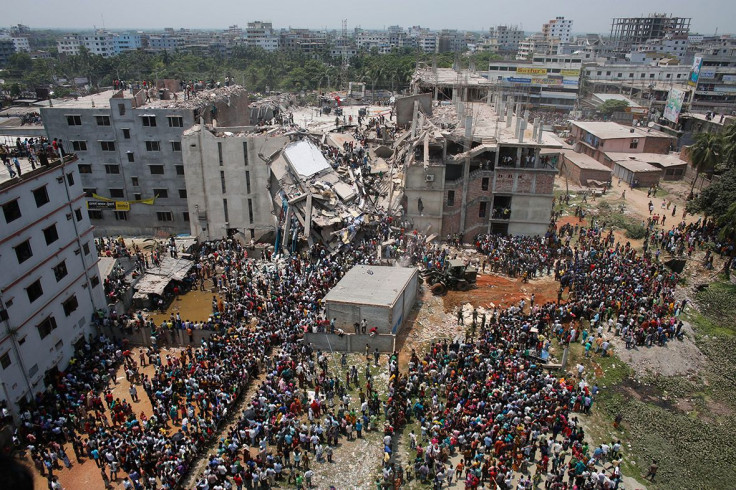Rana Plaza Disaster Update: Owner Sohel Rana Charged With Murder In Building Collapse That Killed 1,129

Update as of 5:00 a.m. EDT: Bangladesh on Monday charged Sohel Rana, owner of the Rana Plaza factory complex, with murder over the death of over 1,100 people who died after the building collapsed in 2013, Agence France-Presse (AFP) reported.
Forty other people, including Rana’s father, Abdul Khaled, and mother, Morzina Begum, are also among the accused in the case.
"We've charged 41 people including the owner of the building, Sohel Rana, with murder over the collapse of Rana Plaza in April 2013," lead investigator Bijoy Krishna Kar told AFP.
Original story:
Authorities in Bangledesh will pursue murder charges against Sohel Rana, owner of the Rana Plaza factory complex, over the building's collapse in 2013, when 1,129 people were killed and more than 2,5oo were injured is what is considered the country's worst industrial disaster of all time. Rana will be charged along with 40 other people, including his parents, Australia's ABC News reported.
Before it collapsed April 24, 2013, Rana Plaza stood eight stories tall in Savar Upazilla outside the national capital of Dhaka.
"It was a mass killing. All 41 of those charged have a collective responsibility for the tragedy," lead investigator Bijoy Krishna Kar told ABC News. Those charged could face the death penalty, should any or all be convicted.
Authorities announced they would like to charge Rana last year after he was arrested while attempting to flee Bangledesh following the disaster. The process was delayed because police needed government approval to frame charges against government officials: There are a dozen such people among the 41 to be charged, ABC News said.
Police will submit Sunday a list of charges to Dhaka’s chief judicial magistrates court, which is expected to accept the charges and select a date for the trial.
At the time of the building collapse, there were 3,122 workers at the site, according to the Bangladesh Garment Manufacturers and Exporters Association.
A number of survivors told authorities they were forced to enter the complex despite several complaints about cracks appearing in the walls.
"They [Rana and the factory owners] discussed and decided to keep the factory open," Kar said. "They sent the workers to their deaths with cool heads."
Among the charges, Rana and others will be cited for violating the building code for illegally expanding the original six-story building. "That illegal extension violating all construction [regulations] was the seed of this massive disaster," Kar said.
Seven owners of garment factories and three government engineers who allowed additions to the building will also be charged.
Italy’s Benetton, Spain's Mango and the U.K.'s Primark all had clothing made at Rana Plaza.
© Copyright IBTimes 2025. All rights reserved.





















